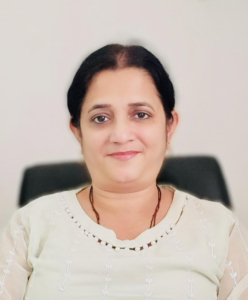Consequences of a Dysfunctional Family on Children

Conflicts can be common between two individuals, having a negligible effect on the other person. However, when issues or differences occur between the ones to whom we are closely related, it does create an impression on us. The same goes for the case of any family. Any issues between family members affect other members, specifically the children. A family conflict is a disagreement between two members and each other’s views, beliefs, or any other kind of opinion or action.
Family conflict does affect other members of the family, especially the children, who are more vulnerable to these issues. Children in their growing stage require support from other members. This can be in the form of guidance, encouragement, or any other way possible. Interaction of the family members with each other forms the basis of the dynamics of a family. Whatever action parents take in front of children, including their behaviour, can be taught to them. This will somehow be reflected in the children’s behaviour while interacting with any non-family members. Children seek their parents for any kind of assistance. Among which emotional support can be the one for which they sometimes cannot ask for.
Any supportive parents will give their children the required advice, guidance, care, and support that will ultimately contribute to their development. Parenting in a supportive and nurturing manner is crucial for fostering a healthy family environment, ensuring children receive the necessary emotional and practical support essential for their well-rounded growth.
Common Causes of Dysfunctional Family
A dysfunctional family can be represented by the conflicts happening between the family members. However, it is not only the difference in opinion but many other factors that lead to family problems. Some of the common causes of a dysfunctional family are given below:
- Family members not spending enough time with each other: While some do not consider this to be a source of creating issues among the family members, this is the major cause of creating a family conflict. Not only is it the roof of the family that keeps people living together, but it is the interaction between them that binds its family members. People who do not spend time together cannot know each other. Thus, the absence of togetherness can lead to conflicts among the family members.
- No Interaction or sharing of feelings and emotions: An openness among the family members, especially in the case of children with their parents, is necessary. It is seen in many cases that sometimes children going through something cannot express it to their parents. This led them to face further consequences. While children need to be open, parents should also be able to provide or create a comfortable environment for their children.
- Past Problems: Among family members, especially between the parents, issues or conflicts that have happened in the past should be solved without having any loose ends. Any unresolved feeling makes it hard for the people to move on and thus can be a cause of conflict between them.
Consequences of Family Issues on Children
Children’s sense of security and stability can be harmed by prolonged and intense dispute between parents, which negatively impacts how they interact with their parents and peers. Conflicts of this nature are linked to negative consequences, such as lowered self-esteem, hampered academic performance, and detrimental effects on one’s physical and mental well-being. The effects go beyond family dynamics and affect a child’s life.
Dealing with the Consequences of Family Conflicts
Family conflicts can have a serious impact on the children’s emotions and can lead to behavioural or emotional concerns. While some can neglect these things, steps need to be taken by the parents. That can help their children overcome these family issues. Consulting with a family therapy counselor can help, and based on the condition, different kinds of assistance can be recommended, like psychotherapy or professional counseling for parents and Behavioural therapy for children.
Latest Post
Categories
Book Session



 Ms. Prachi Tripathi(M.A. P.G. DIP, UK) CLINICAL PSYCHOLOGIST & PSYCHOTHERAPIST (FOUNDER)
Ms. Prachi Tripathi(M.A. P.G. DIP, UK) CLINICAL PSYCHOLOGIST & PSYCHOTHERAPIST (FOUNDER) SWAPNIL BHOPI
SWAPNIL BHOPI 





 Ms. Kasturi Roy
Ms. Kasturi Roy Ms. Nidhi Karia
Ms. Nidhi Karia Ms. Neha Bhansali
Ms. Neha Bhansali Dr. Avinash De Souza
Dr. Avinash De Souza